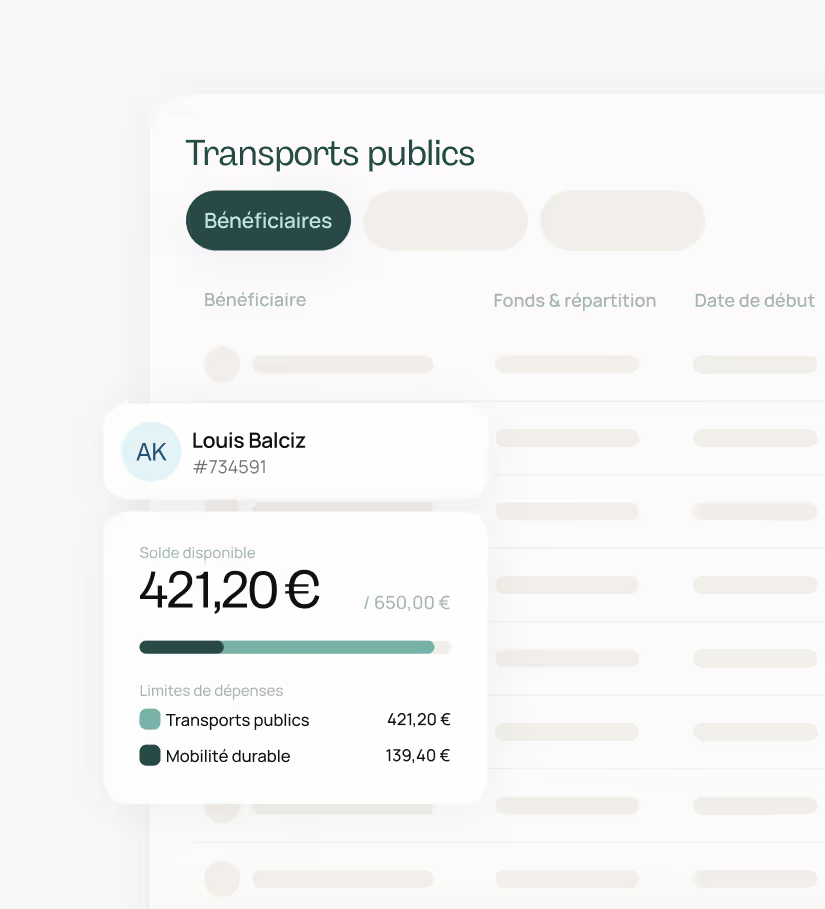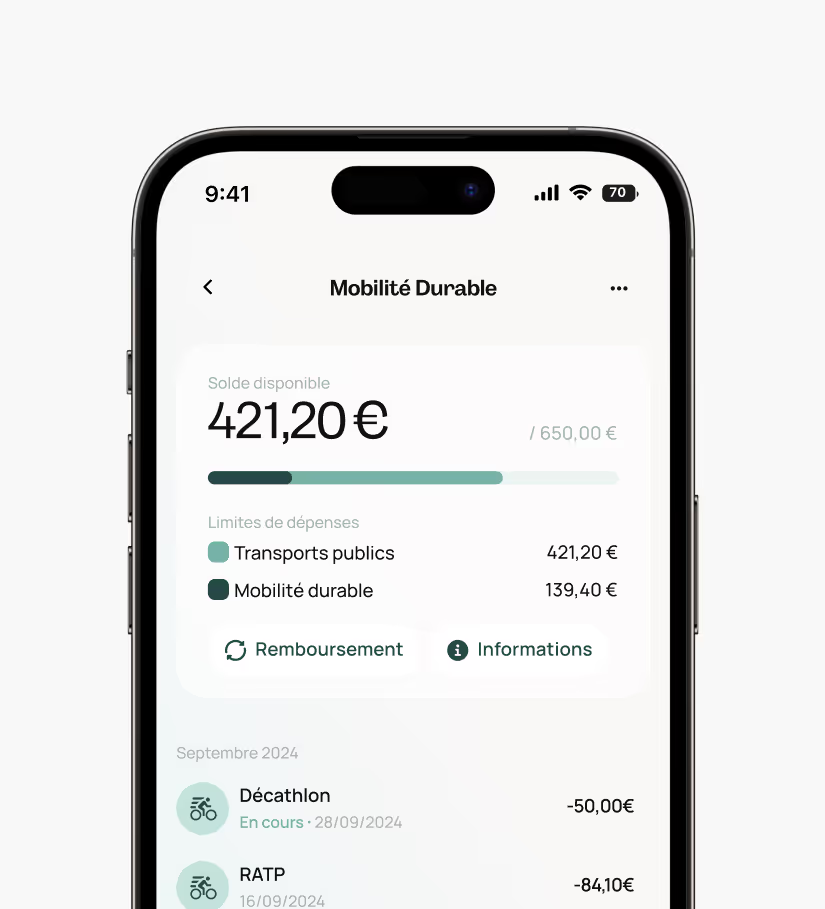Public transport: metro, work, let's go!
Offer your employees a simple, paperless solution for managing their public transport season tickets.

.svg)
More than 1,000 companies have proven themselves alongside us.




.svg)

of French people living in large conurbations use public transport to get to work.

The largest spending network with a card accepted everywhere

The most ethical offer on the market, with 0% commission deducted from merchants

More than just a solution for managing your benefits, it's a hub for all your activities.

You have everything to gain



The + with Worklife
Our AI automatically detects errors when importing your order file, so you can correct your data immediately.
Your employees too



The + with Worklife
Your employees receive all your HR news directly on the app.
You have everything to gain

The + with Worklife
Our AI automatically detects errors when importing your order file, so you can correct your data immediately.
Your employees too

The + with Worklife
Your employees receive all your HR news directly on the app.
Mobility credit

Business mileage allowance

The + with Worklife
Each employee has a personalized allowance to spend in the merchant network of your choice.
Available soon!
Fuel card

Compare devices
- Bicycles (personal and rental)
- Motorized vehicles (scooters, monoroues, gyropods, etc.)
- Carpooling (driver or passenger)
- Self-service bicycles, scooters and scooters
- Low-emission car-sharing services
- Public transport (excluding season tickets)
- 600 per year per employee (after deduction of the transport allowance if combined with the latter)
- 900 per year per employee, after deduction of public transport costs
- 300 per year per employee for fuel costs
- 600 per year per employee for the cost of powering electric, plug-in hybrid or hydrogen-powered vehicles
- €7.50 if meals are taken at the workplace due to special organizational conditions or working hours
- €10.40 meal allowance outside company premises
- €21.40 if the meal is taken in a restaurant (e.g., business meal)
How do you choose the right
device?


Frequently asked questions
Yes. Employers must cover at least 50% of the cost of public transportation passes (or public bicycle rental services) for all employees, including part-time employees, for travel between their usual place of residence and their place of work. Coverage is based on second-class fares. It is exempt from social security contributions.
This applies to annual, monthly or weekly passes issued by the SNCF, RATP, a public transport company or other public transport authority, or a subscription to a public bicycle rental service. Single tickets are not concerned.
The employer's contribution covers the entire journey by public transport between the employee's usual place of residence and the workplace. If more than one season ticket is required for the journey, the employer will pay 50% of the cost of the various season tickets (for example, a weekly SNCF season ticket plus a city bus season ticket). However, the employer is not obliged to cover the cost of fuel used by employees to get to their place of work.
Absolutely, you can go up to 75% without social security charges. In fact, the 2025 Finance Act extended tax and social security exemptions for employers who decide to increase to 75% their contribution to the cost of public transport passes or public bicycle hire subscriptions taken out by employees for travel between home and work, without conditions, i.e. even in cases where the distance from home is based on personal convenience.
Exactly. By combining the Forfait Mobilités Durables (FMD) with the reimbursement of public transport costs, employers can encourage sustainable mobility while meeting their legal obligations.













































